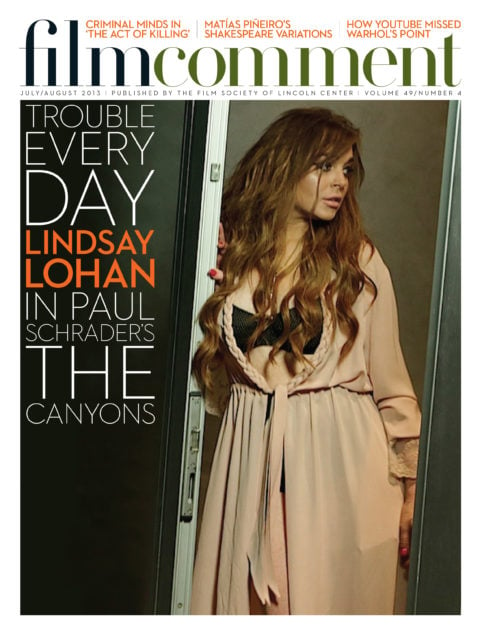
You don’t often get a directorial swan song as explicit, or as darkly funny, as the late Aleksei Balabanov’s tenth and final film. In this sideways homage to Stalker, a group of urban pilgrims in an SUV speed toward a devastated Zone-like location outside St. Petersburg where it’s permanently winter. There, a derelict church bell-tower supposedly contains a portal to eternal happiness. But there’s the pervasive sense—as there is in Russia generally—that it’s kind of too late.
For the director of Brother (97) and Cargo 200 (07), the pursuit of happiness is an occasion for deadpan comedy; during an early uneventful driving scene a car crash is heard off screen. The travelers, played by nonprofessional actors, are a motley bunch. The man behind the wheel is a gangster, traveling with two friends, one an alcoholic who brings his ailing father along, the other a musician, and along the way they pick up a hitchhiking philosophy student turned prostitute. Just another road trip, except that the driver keeps recounting stories that end in murder. The vodka flows freely; they arrive to find the snowy landscape strewn with frozen bodies; the musician yowls a hopeless song by a campfire.
“The films of Aleksei Balabanov are a collective portrait of our country at its most dramatic time in history,” wrote noted critic and Russian Prime Minister Dmitri A. Medvedev (on Facebook). Balabanov’s final film might sound like an allegorical critique of the era in question, but it’s also like the last song at the end of the night: various characters utter the film’s title as an almost comically plaintive refrain. As for Balabanov, he apparently had no illusions about what was to come: he plays a director who has been denied entry to the bell tower.








